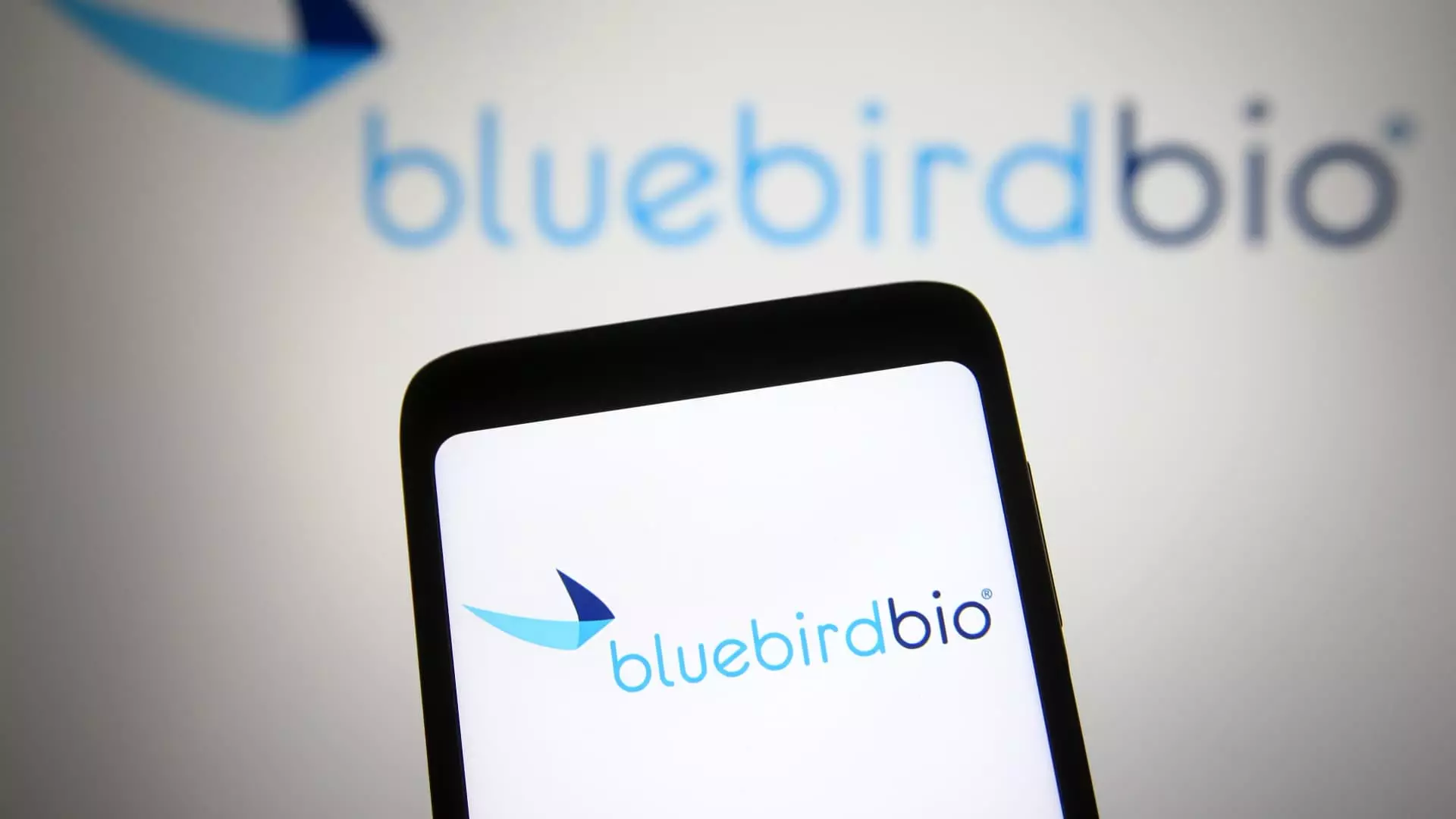Bluebird Bio, once celebrated as a leader in the biotechnology sector, is now set to be acquired by private equity firms Carlyle and SK Capital for approximately $30 million. This transaction signifies a significant decline for a company that once enjoyed a market capitalization of nearly $9 billion, buoyed by the promise of revolutionary gene therapies aimed at curing severe genetic disorders. The journey from that lofty position to today’s distressing financial state illustrates the volatility inherent in the biotech industry and raises critical questions about the sustainability of highly specialized gene therapies.
Under the terms of the acquisition, Bluebird’s shareholders will receive $3 per share, with the potential for an additional $6.84 if the company’s gene therapies achieve $600 million in sales during any 12-month period by the end of 2027. This offer is a stark contrast to the company’s share price, which was $7.04 prior to the announcement, clearly reflecting investor sentiment in response to Bluebird’s prolonged challenges. On the day following the acquisition announcement, shares plummeted by 40%, an immediate reaction that underscores the apprehension surrounding the company’s future prospects.
For over three decades, Bluebird Bio was at the helm of innovations in the realm of one-time genetic therapies. However, the emergence of alarming scientific issues began to chip away at rational investor enthusiasm, leading to palpable doubt. The pivotal moment occurred in 2018 when a patient treated for sickle cell disease developed cancer. Though Bluebird reassuringly concluded their therapy did not instigate the malignancy, the incident raised grave concerns about the long-term safety of their genetic treatments, igniting skepticism which would haunt the company in the years following.
In addition to scientific setbacks, Bluebird faced stiff resistance from the European market after pricing its gene therapy, Zynteglo, at a staggering $1.8 million per patient. The steep cost prompted backlash, leading to the treatment’s withdrawal from Europe merely two years post-approval. In a desperate pivot, Bluebird redirected focus toward the U.S. market, where they prepared for the approval of Zynteglo, along with newly developed therapies like Lyfgenia and Skysona. However, despite these efforts and subsequent approvals, the company continued to grapple with alarming financial losses, with expenses skyrocketing into the hundreds of millions annually.
The decision to offload their cancer treatment division into 2Seventy Bio removed not only an important revenue stream but also intensified Bluebird’s financial difficulties. Reports indicated that the company’s cash reserves would only sustain operations through early 2023, leaving little room for error. The contrast between this pressing financial reality and the extraordinary potential of their treatments further deepens the tragedy surrounding Bluebird’s plight.
The narrative of Bluebird Bio reverberates throughout the biotechnology field, raising broader questions regarding the challenges of translating groundbreaking scientific innovations into financially sustainable models. Competing firms also face similar hurdles; Vertex’s gene therapy for sickle cell disease has struggled with uptake, and Pfizer recently announced the cessation of its gene therapy for hemophilia after just a year on the market, citing disappointing demand. These developments suggest a consequential shift in examining how these transformative treatments can be effectively marketed and integrated into healthcare systems without collapsing under their financial weight.
Despite the setbacks, it is paramount to recognize that Bluebird’s contributions to medicine have had a significant impact on many patients’ lives. Testimonials from individuals experiencing life-altering benefits from therapies such as Zynteglo highlight the missed opportunities and profound human cost tied to corporate challenges. Moving forward, the biotech community must address the dichotomy of innovation against a backdrop of financial viability, lest other companies suffer a fate similar to Bluebird’s, which serves as a cautionary reminder of the delicate balance between pioneering science and sustainable business practices.

